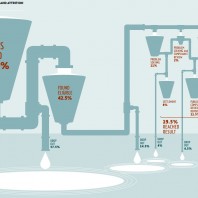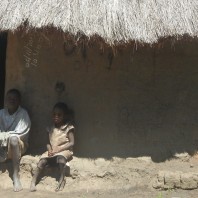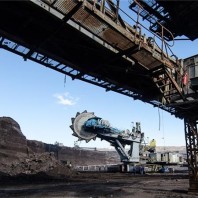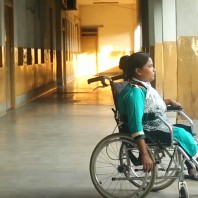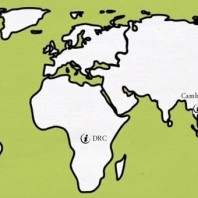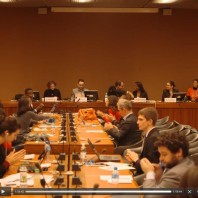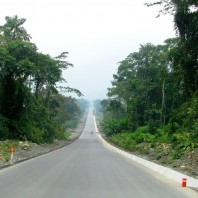Report finds development banks fail people harmed by their projects: Civil society calls on banks to strengthen their complaint mechanisms to provide remedy A new report launched today by several BIC partners documents the hurdles communities and workers face in obtaining remedy from development banks whose projects cause them harm. Glass Half Full? The State …
On December 28 2015, World Bank Group President Jim Yong Kim announced the cancellation of funding to the deeply troubled Uganda Transport Sector Development Project (TSDP), a project BIC’s child rights program has long been raising concerns about. The project cancellation was due to concerns over labor issues, social and environmental concerns, poor project performance, …
[Valerie Plesch/Al Jazeera] BIC’s Nezir Sinani was quoted in an Al Jazeera article on Kosovo’s coal country by Valerie Plesch. The article finds that “residents living in the polluting shadows of two power plants may soon contend with a third.” Find the full article here.
Access Bangladesh Foundation which advocates and promotes equality for disabled, underprivileged and extremely poor people in all spheres of life, through education, health care, appropriate training, employment, communication, and barrier free environment released a video on the World Bank funded Skills and Training Enhancement Project (STEP) in Bangladesh. The video, a summary of the in-depth …
The World Bank Group is the largest source of multilateral finance for forests, and a standard setter for international finance broadly. However, the Bank invests significantly more each year in sectors demonstrated to be primary drivers of deforestation such as agriculture, energy and mining, and transportation; than what it invests in forests. The Bank Information …
During the 4th Annual UN Forum on Business and Human Rights in Geneva from November 16-19, 2015, BIC’s Maggie Federici participated in a panel entitled Development Finance Institutions: Human Rights Obligations and the Right to Remedy. Development finance institutions (DFIs) have a mandate to alleviate poverty and promote sustainable development. But, in many cases, projects funded by …
New research today reveals that not one of the world’s main development banks is on track to help keep the world below 2 degrees warming. Instead, the banks – funded by tax-payers – continue to support fossil-fuel projects in developing countries. Worst performers include the World Bank’s private sector lending arms[1] which promote fossil fuels …
World Bank president urged to commit to Zero Deforestation declaration, speak out on deforestation at COP21 in Paris Conserving forests is one of the most important climate change mitigation solutions, and is essential to addressing the World Bank’s twin goals of eliminating extreme poverty and promoting shared prosperity. As many progressive governments and private sector …
BIC is thrilled to be contributing to the 2015 UN Forum on Business and Human Rights in Geneva November 16-18! Board members Katie Redford and Vicky Tauli-Corpuz (pictured right) are in attendance. BIC Safeguards Program Assistant Margaret Federici was featured as a panelist on “Development Finance Institutions: Human Rights Obligations and the Right to Remedy,” alongside …
Society and Disability and the Peruvian Down Syndrome Society, civil society organizations in Peru advocating for the rights of persons with disabilities, have produced a video on the impact of the World Bank funded Lima Urban Transport Project (Metropolitano) and the Mainstreaming Inclusive Design and Universal Mobility in Lima Project on persons with disabilities. The …

